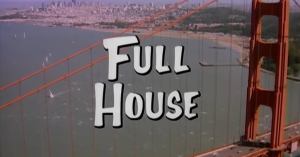Katy Perry has won an appeal in her ongoing lawsuit regarding her 2013 song, “Dark Horse,” when a judge overturned a copyright infringement verdict that was originally given last year. In July 2019, a jury found that Perry’s song was guilty of copyright infringement due to an eight-note musical segment from the track, which the jury determined to be from Christian rapper Flame’s 2009 song “Joyful Noise.”
On Wednesday, March 18, the ruling was overturned after an October 2019 appeal by filed by Katy Perry, Lukasz “Dr. Luke” Gottwald, and Capitol Records. In addition, the $2.8 million jury judgement that had been awarded to Flame in damages was wiped out. Entertainment Tonight reports that California Federal Judge Christina A. Snyder ruled that the jury’s ruling was not supported by the evidence in the case. “A relatively common 8-note combination of unprotected elements that happens to be played in a timbre common to a particular genre of music cannot be so original as to warrant copyright protection,” Snyder wrote in her judicial opinion. Flame will be able to appeal Snyder’s new ruling to the 9th Circuit Court.
Videos by PopCulture.com
“Dark Horse” appears on Perry’s album Prism and was written by the singer, Gottwald, Jordan Houston, Max Martin, Sarah Theresa Hudson and Henry Walter. Flame, real name Marcus Gray, first sued Perry several years ago, arguing that the central eight-note beat of “Dark Horse” copies his own from “Joyful Noise.” In response, Perry’s legal team argued that the beat in question was not unique to Gray’s song.
Perry and her co-writers, including Gottwald, testified that none of them had heard of the song or Gray before the suit and did not listen to Christian music. Gray’s attorneys argued that the song was streamed millions of times on Spotify and YouTube in addition to receiving a Grammy nomination and claimed that it would have been easy for Perry or her collaborators to have heard it.
“There is no infringement. There was no access or substantial similarity. The only thing in common is unprotectable expression — evenly spaced ‘C’ and ‘B’ notes — repeated. People including musicologists from all over are expressing their dismay over this,” attorney Christine Lepera said in a statement to ET last year. “We will continue to fight at all appropriate levels to rectify the injustice.”
On Aug. 1, Perry, her collaborators, and her record label were ordered to pay Gray $2.78 million in damages. Perry was ordered to pay $550,000 herself, with Capitol Records to provide the majority of the payment to Gray and is co-writers. The payment amount was determined after Gray’s attorneys argued that the song netted tens of millions of dollars, while Perry’s attorneys argued that it cost millions of dollars to make and market the track, which went to No. 1 on the Billboard Hot 100.
Photo Credit: Getty / Ryan Pierse









